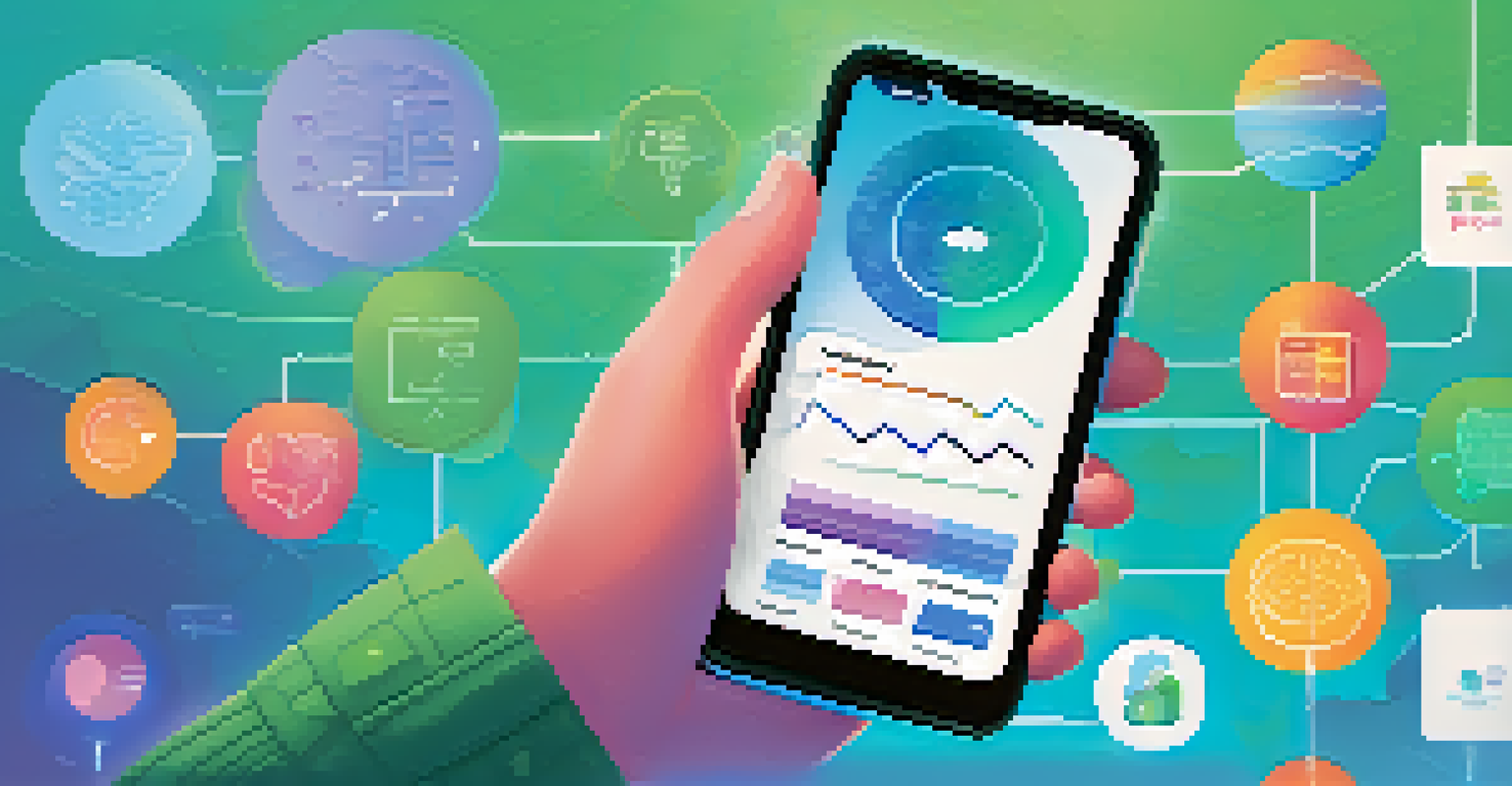Top Online Mental Health Resources: Accessing Help Easily

Understanding the Importance of Mental Health Resources
Mental health is just as important as physical health, yet often overlooked. Resources available online provide crucial support for those struggling with mental health issues. By utilizing these tools, individuals can access immediate help, making it easier to navigate their challenges.
Mental health is not a destination, but a process. It's about how you drive, not where you're going.
Many people feel isolated in their struggles, but online platforms create a sense of community and understanding. They offer a range of resources from articles and videos to forums where individuals can share experiences and find solace. This connection can be a lifeline to someone feeling lost.
Moreover, the convenience of online mental health resources means help is just a click away. Whether it’s a late-night crisis or a busy schedule preventing a visit to a therapist, these resources ensure that support is available whenever it’s needed.
Online Therapy Platforms: A Modern Solution
Online therapy platforms have transformed the way we access mental health support. Services like BetterHelp and Talkspace connect individuals with licensed therapists through chat, video, or phone calls. This flexibility allows users to choose how they want to communicate based on their comfort level.

One of the biggest benefits of these platforms is the accessibility they provide. No longer do individuals need to commute to a therapist's office, making it easier for those with mobility issues or hectic schedules to seek help. Additionally, many of these services offer subscription models, making therapy more affordable.
Mental Health Resources Matter
Online platforms provide essential support for individuals facing mental health challenges, fostering community and accessibility.
Furthermore, the anonymity offered by online therapy can help those who might feel embarrassed about seeking help. It creates a safe space for individuals to express their feelings without fear of judgment, fostering a more open dialogue about mental health.
Mental Health Apps: Support at Your Fingertips
Mental health apps have gained popularity as convenient tools for self-care and support. Apps like Headspace and Calm provide guided meditations and mindfulness exercises that can help reduce anxiety and improve overall well-being. These resources empower users to manage their mental health proactively.
The greatest weapon against stress is our ability to choose one thought over another.
Many apps also offer features for tracking mood and journaling, allowing users to gain insights into their emotional patterns. This self-awareness can be a game-changer in understanding triggers and developing coping strategies. The interactive nature of these apps keeps users engaged in their mental health journey.
Moreover, with the growing trend of gamification, many mental health apps make self-care feel less daunting and more enjoyable. By incorporating challenges and rewards, users are encouraged to practice healthy habits consistently, leading to improved mental health over time.
Support Groups: Finding Community Online
Support groups can be incredibly beneficial for those dealing with mental health issues. Online platforms like 7 Cups and Meetup help connect individuals with similar struggles, fostering a sense of belonging. Sharing experiences can alleviate feelings of isolation and provide encouragement.
These groups often provide a safe space for open discussion, allowing members to share their journey and coping methods. Hearing from others who have faced similar challenges can offer new perspectives and solutions that one might not have considered. It's comforting to know you’re not alone in your struggles.
Online Therapy: Flexible Support
Services like BetterHelp and Talkspace have revolutionized access to therapy, offering convenience and anonymity for users.
Additionally, many online support groups are moderated by mental health professionals, ensuring a safe and productive environment. This professional guidance can make discussions more constructive and offer valuable resources to group members.
Crisis Hotlines: Immediate Help When You Need It
Crisis hotlines are vital resources for anyone in immediate distress. Services like the National Suicide Prevention Lifeline provide 24/7 support for individuals in crisis, ensuring they can speak to someone who cares. These hotlines can be a lifeline during moments of overwhelming despair.
When someone reaches out to a crisis hotline, they're met with trained professionals who can offer immediate support and resources. This can help individuals feel heard and understood, which is often the first step toward recovery. Knowing that help is available at any time can be incredibly reassuring.
Moreover, many hotlines provide additional resources and referrals for ongoing support. After an initial call, individuals can be guided to local services or online resources to continue their healing journey.
Educational Websites: Learning About Mental Health
Educational websites serve as excellent resources for understanding mental health better. Organizations like Mental Health America and the Anxiety and Depression Association of America offer articles, toolkits, and webinars tailored to various mental health topics. This knowledge empowers individuals to recognize symptoms and seek help.
By exploring these sites, users can gain insights into their mental health challenges and learn about effective coping strategies. Understanding the science behind mental health can demystify the experience and reduce stigma. Knowledge is a powerful tool in promoting mental well-being.
Community is Key in Healing
Support groups and social media create connections that alleviate isolation, providing encouragement and shared experiences among individuals.
Additionally, many educational websites offer directories of therapists and other mental health professionals. This makes it easier for individuals to find the right support tailored to their specific needs, whether it’s therapy, medication, or community support.
Social Media: Harnessing Connections for Support
Social media is often viewed as a double-edged sword, but it can also be a powerful tool for mental health awareness and support. Platforms like Instagram and Twitter host communities where people share their mental health journeys, fostering openness and connection. Following mental health advocates can provide daily inspiration and positivity.
Moreover, many organizations use social media to raise awareness about mental health issues and share valuable resources. Campaigns like #MentalHealthAwareness promote conversations that can help reduce stigma, encouraging others to seek help. This collective effort can create a more supportive environment for those struggling.

However, it’s essential to curate your social media feed mindfully. Following accounts that uplift and educate can significantly impact your mental health, while negative or toxic content can do the opposite. Engaging with positive communities can enhance your support network.